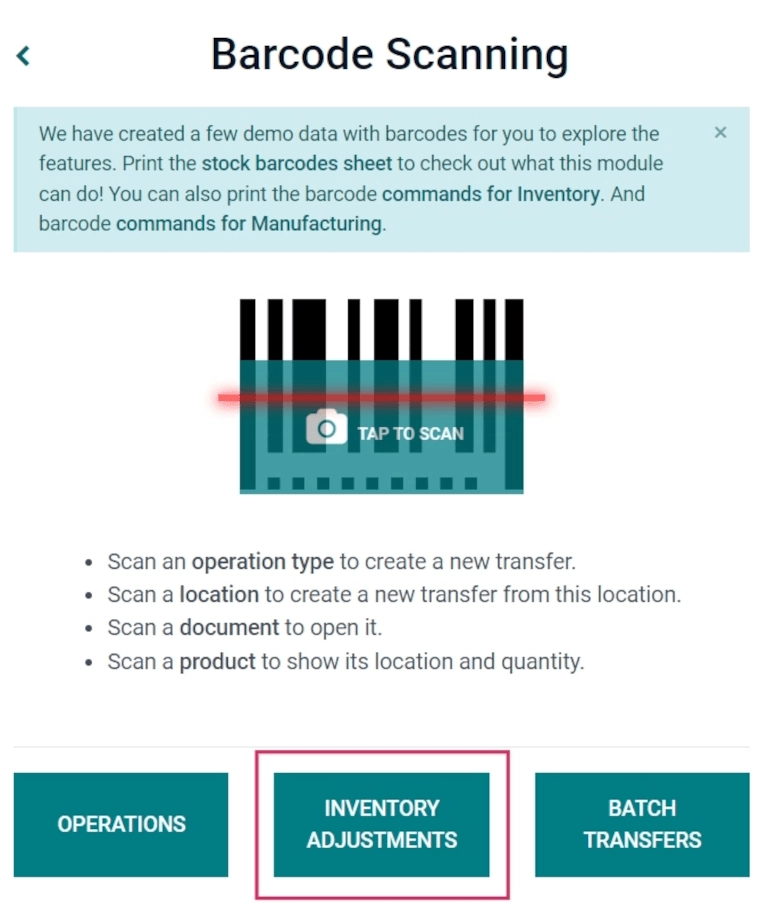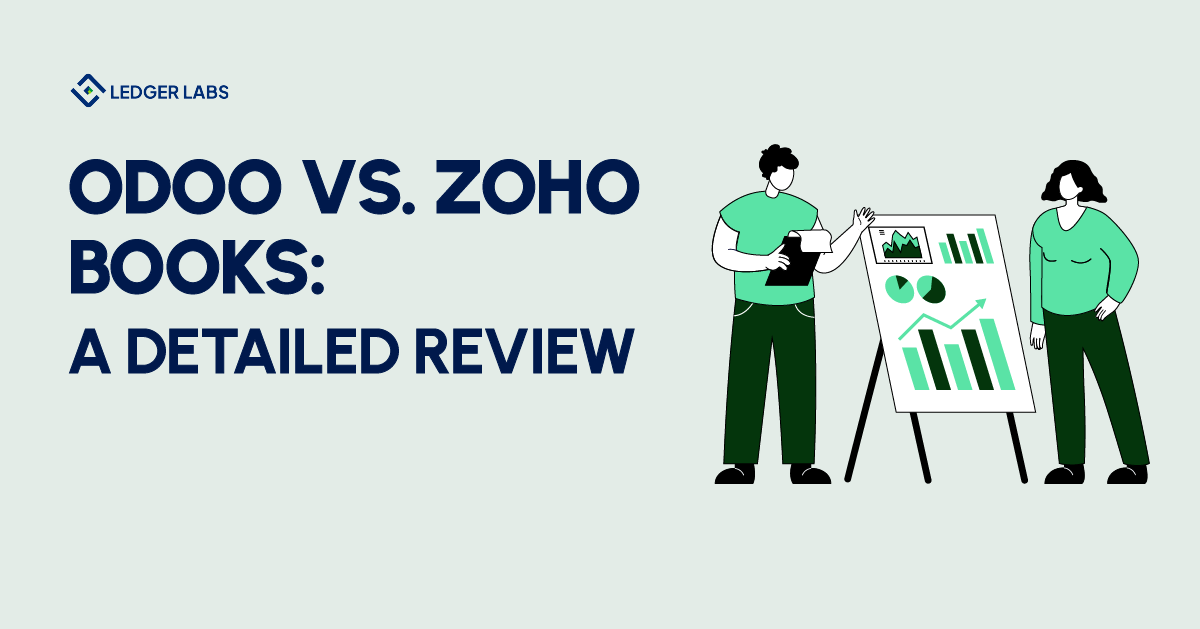E-commerce businesses need technology to streamline practically everything.
A business management tool plays an important role in this regard, offering a wide range of features to automate operations and reduce the likelihood of errors.
However, the real struggle arises when choosing software that meets your specific needs.
On one hand, you have Odoo, an open-source ERP solution, that integrates accounting, customer relationship management, marketing, and other business processes into one single platform.
And on the other, you have Zoho Books, a popular software that provides CRM support and mainly focuses on financial management.
So what accounting software is right for your business?
Let’s explore the different aspects of these business management tools to help you decide the best option for your business.
- Odoo is an open-source ERP solution so it gets updates for further improvement with time.
- Odoo has diverse functionalities, like inventory and accounting management, CRM support, and marketing.
- Zoho Books is an accounting tool that helps businesses improve their financial management, especially their cash flow.
- Zoho can be connected to other applications, like CRM whenever a business is looking to upgrade its functionality.
Odoo – An open-source ERP solution for small businesses
Odoo is an open-source ERP software with a suite of business applications, like accounting, CRM, and inventory management, that centralize your data and enhance operational efficiency.
E-commerce businesses should subscribe to Odoo as it’s a cheaper alternative than its competitors, and it also offers a free plan. But if you think about it, Odoo is feasible because paying separately for each of these functionalities costs more.
While Odoo has a learning curve, it is highly customizable thanks to its flexible structure.
It means that you can install and uninstall applications based on what your business needs and can do without. It is also ideal for users who like to keep their screens organized. With a “modular”, or more simply, flexible structure, you can add and discard apps from your dashboard.
Let’s say you want to connect Odoo’s inventory with an e-commerce platform, like Shopify. This option is not available for the cloud but it is available with Odoo Enterprise.
Odoo is user-friendly and helps you stay on track with projects. You can use Kanban boards and calendars to track project progress and give you meeting reminders.
This platform centralizes your database which makes data exchange between applications or “modules” more accurate and fast.
So if you’ve connected your accounts and inventory channels, you’ll see immediate changes and the impact of one channel on the other.
Let’s say you make a sale, you’ll notice how it reflects on your inventory levels as well as your transactions and profit. To explain this further, suppose you make a sale. It will show one less item in your inventory. At the same time, you’ll see the record of cash inflow in your accounts.
The best thing about Odoo is that you can use it both online and offline. This gives you an uninterrupted workflow, and once you’re back online, the data gets synchronized automatically.
Core functionalities of Odoo
1. Detailed accounting
Odoo can help businesses manage their bookkeeping, bank reconciliations, invoice generation, and account payables and receivables.
Here are some of the ways you can use Odoo’s accounting feature:
- You can use Odoo to automate payment reminders.
- Odoo automates bank reconciliations to reduce manual errors and increase accuracy.
- You can use Odoo to track your transactions, improving cash flow management.
- Odoo helps businesses create financial reports, such as balance sheets and income statements. It considers real-time data to help you make informed decisions, reflecting your latest reality.
- You can use Odoo to reimburse employees as it has an automated expense management feature that matches receipts with system data.
- Businesses use Odoo to prepare and file tax returns according to local, state, and country laws.
2. Inventory management
Odoo has a solid inventory management system that helps you track your inventory levels, track shipping, and monitor all warehouse operations.
You can use Odoo to handle all product transfers from the warehouse to their respective delivery addresses.
It has a strong purchase order system that you can use to predict inventory needs. So it will alert you when the stock is low so you can avoid stock-out situations.
It also helps businesses find the best route for their order, ensuring your order gets delivered on time and without any problems.
Odoo can easily connect with a barcode scanner that helps you track products with ease. So both you and your customers can use it to track order details and shipment whereabouts. The purpose is to improve the order fulfillment process and increase customer satisfaction.

While these are minor steps, they give businesses control and visibility, empowering them to continue operations without second thoughts.
Zoho Books – A cloud-based accounting software
Zoho Books is just one part of the Zoho company that offers you several connected applications to handle CRM, email, data ticketing, and payroll management.
This software offers a double-entry accounting system that reduces the risk of data entry errors, helping you create simple reports like income statements. This is particularly ideal for businesses with an accounting team of less than 10 employees. However, if your team is bigger, you can also explore other alternatives, like QuickBooks Online.
For example, the Advanced plan offered by QuickBooks Online allows 25 users for only $200 per month. In comparison, Zoho Books allows only 15 users, and that too, for $240 a month.
What makes Zoho Books better than its competitors, like QuickBooks, is that it offers inventory management solutions along with accounting support. So you can use it to track stock levels, even with its most basic plan.
While it may not seem like a big deal, you’d have to buy QuickBooks Elite to manage multi-channel inventory.
You can use Zoho Books to calculate your sales tax according to your business’s location and customers. This gives online retailers an edge and they can maintain compliance while dealing with customers from different states.
Just like Odoo, Zoho Books offers a free plan – something you wouldn’t find in other accounting software for e-commerce businesses, like FreshBooks.
Now the problem with Zoho Books is that it doesn’t offer any built-in payment gateways. This is a major turnoff for e-commerce businesses as it means integrating Zoho Books with third-party applications.
Also, to maximize your business’s potential, you can’t simply rely on Zoho Books. You need other applications to optimize its functionality. So, it is better to opt for Zoho One Bundle instead of simply subscribing to Zoho Books.
You can also opt for an ERP solution like NetSuite.
Core functionalities
Cashflow management
Zoho Books accepts direct ACH payments from your customers, helping businesses improve their cash flow.
Also. you can integrate Zoho Books with online payment gateways, like Stripe integration. While these third-party applications charge a transactional fee, this step will centralize your accounting data to reduce errors related to manual data entry.
Invoice generation
Zoho Books makes your invoice generation simple, fast, and convenient. It has a user-friendly interface that is highly customizable.
While Zoho Books has 16 invoice templates, it allows businesses to change the invoice content and add custom fields and specific terms and conditions. This feature is extremely simple when you compare it with other accounting software, like QuickBooks. Here you can change the font, color, and other aspects of your invoice.
Also, you can schedule recurring invoices for regular customers and vendors. This speeds up your processes, makes them more efficient, and helps you get paid faster.
Reporting
Businesses looking for a simple and user-friendly tool for creating financial reports should get Zoho Books. It has 50+ accounting and financial reports, such as profit and loss statements and balance sheets.
You can use it to analyze your liquidity situation to improve cash flow management and the overall health of your finances.
Odoo vs. Zoho Books – Choosing the right solution for small business
1. Functionality
While Zoho Books specifically helps businesses manage their finances, Odoo is your all-rounder that offers features beyond accounting.
Because of this reason, Odoo gets the upper hand as it gives businesses a holistic approach to managing their business – not just finances.
Also, when you consider Odoo and its core functionalities, you’ll find that is more versatile. You can use it to handle your CRM, marketing and sales, and even inventory.
On the other hand, Zoho Books is specifically designed to help businesses handle their accounting. So you can’t really expect it to manage complex business problems.
2. Customization
Odoo is highly customizable and can be ideal for businesses looking for a complete business solution.
While it does have a learning curve, especially for employees without any coding experience, it does give you the ability to expand and grow your business. You can constantly add and remove applications depending on your business needs.
Zoho Books is excellent for businesses looking for an accounting solution. It is easy to use but offers limited customization since it’s only an accounting tool.
3. Pricing
Both Odoo and Zoho Books offer a free version. While both offer subscriptions based on features and users, Odoo simply gets an edge due to its diverse functionality.
3 reasons why you should use Odoo for your business
While there are various reasons for you to choose Odoo for your business, let’s look at the top three.
- It follows a modular structure, which means you can enhance its functionality by adding and removing applications.
- In the early stages of your business, you can do well with only Inventory management and accounts, but as your business grows, you can add CRM functionality to improve customer relationships and communication within the organization.
- This brings us to reason number two. Odoo evolves as your business grows. This means it is a scalable tool that can meet your business needs depending on the situation and time.
- And lastly, when you compare the price of Odoo as a complete business solution you’ll consider it much cheaper. Imagine paying separately for each of its functionalities. That would not only cost you more but you’d also lose out on its centralized database.
3 reasons why you should use Zoho Books for your business
Now let’s consider the reasons for choosing Zoho Books.
- While Zoho Books offers businesses limited features in comparison to Odoo, it has a solid accounting system. You can benefit from its automated invoice generation, strong reporting capabilities, and excellent cash flow management.
- Also, you can combine Zoho Books with other systems, like CRM to enhance its functionality.
- Finally, you get inventory management as a key functionality even in its most basic plan. This is the one aspect that you’ll not find in any other accounting software.
The bottom line
Zoho Books and Odoo are excellent tools for business management but choosing the best option depends on your needs.
While Zoho Books is a great choice for businesses that are just starting out, you’d need a more sophisticated solution like Odoo once the operations expand and your business grows for a more comprehensive e-commerce accounting.
Ledger Labs helps businesses with bookkeeping and accounting solutions to improve business processes and efficiency.
We have 12+ years of experience providing support to businesses across industries and sizes. If you also want to establish a proper Odoo accounting service for your business, we’re the right service for you.
Let’s book an appointment to find out more about how we can help you.












